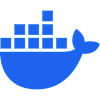Essential Skills & Tech for Freelance Web Developers in 2025

Essential Skills & Tech for Freelance Web Developers in 2025
In-Demand Programming Languages
JavaScript and its Ecosystem (React, Angular, Vue.js)
Python (Django, Flask)
Other Relevant Languages (PHP, Ruby, Go, C#)
Key Web Development Technologies and Trends
AI and Machine Learning in Web Development
Headless CMS and Jamstack
Progressive Web Apps (PWAs) and Mobile-First Development
Cybersecurity Best Practices
Low-Code/No-Code Platforms
Essential Soft Skills for Freelance Success
Effective Communication with Clients
Project Management and Organization
Problem-Solving and Critical Thinking
Adaptability and Continuous Learning
Finding Your Niche
Benefits of Niching Down
Identifying Potential Niches
Conclusion
References
Essential Skills & Tech for Freelance Web Developers in 2025
In-Demand Programming Languages
JavaScript and its Ecosystem (React, Angular, Vue.js)
Python (Django, Flask)
Other Relevant Languages (PHP, Ruby, Go, C#)
Key Web Development Technologies and Trends
AI and Machine Learning in Web Development
Headless CMS and Jamstack
Progressive Web Apps (PWAs) and Mobile-First Development
Cybersecurity Best Practices
Low-Code/No-Code Platforms
Essential Soft Skills for Freelance Success
Effective Communication with Clients
Project Management and Organization
Problem-Solving and Critical Thinking
Adaptability and Continuous Learning
Finding Your Niche
Benefits of Niching Down
Identifying Potential Niches
Conclusion
References
Posted Jun 12, 2025
Discover the crucial skills and technologies every freelance web developer needs to succeed in 2025. Stay ahead with our guide to in-demand programming languages, frameworks, and soft skills.












